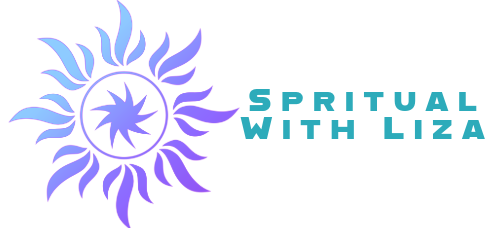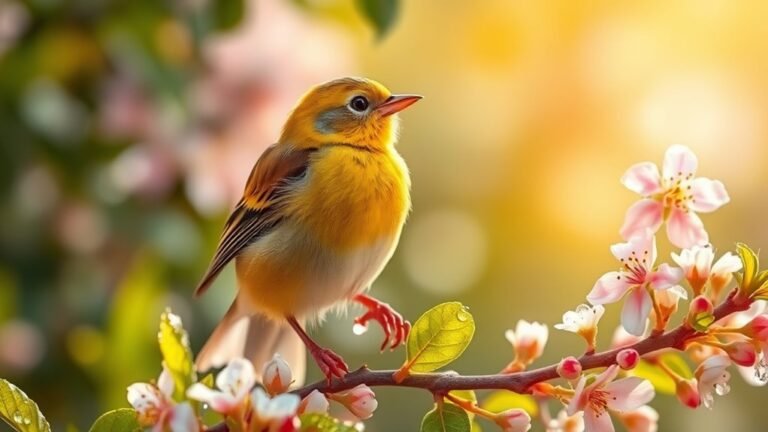13 Spiritual Meanings of a Dead Skunk
When we encounter a dead skunk, it might seem like a simple, albeit unpleasant, sight. However, there's much more beneath the surface that we can explore together. This creature symbolizes transformation, urging us to contemplate how endings can open doors to new beginnings. It also prompts us to reflect on our instincts and the importance of setting boundaries in our lives. So, what does this unexpected encounter truly signify for us, and how can we apply these lessons to our own journeys? Let's uncover the deeper meanings behind this intriguing symbol.
Key Takeaways
- The dead skunk symbolizes the cycles of life and death, reminding us that endings pave the way for new beginnings and transformation.
- It serves as a warning against toxic energies, encouraging awareness and distance from negativity for personal growth and well-being.
- Encountering a dead skunk can prompt reflection on instincts, urging individuals to trust their gut feelings in decision-making.
- The presence of a dead skunk highlights the importance of cleansing rituals, fostering emotional healing by releasing negativity and fear.
- It encourages embracing loss as a catalyst for identity exploration, promoting resilience and connection through shared experiences within a community.
Symbol of Transformation
Embracing the symbol of transformation, a dead skunk invites us to reflect on the cycles of life and death. When we encounter this creature, we're reminded that endings often lead to new beginnings. In our transformation journey, we must recognize that every ending carries the potential for rebirth symbolism. Each stage of our lives, much like the skunk's change, holds valuable lessons that shape who we are.
We've all faced moments that felt like loss, whether it's the end of a relationship, a job, or a dream. It's in these moments that we can choose to honor what once was while also embracing the possibility of what's to come.
The dead skunk, though seemingly morbid, teaches us that decay is a necessary part of growth. As we let go, we create space for renewal, allowing new opportunities and experiences to flourish in our lives.
Together, let's celebrate the power of transformation. By acknowledging the beauty in these cycles, we not only find solace in our struggles but also a sense of belonging to the greater tapestry of life.
We're all in this journey together, steering through the intricate dance of change.
Message of Cleansing
The message of cleansing that a dead skunk brings is profound and resonates deeply within our lives. It invites us to reflect on the areas where we may be holding onto negativity or emotional baggage. We often forget that cleansing rituals are essential for our spiritual purification, allowing us to release what no longer serves us.
As we navigate our journeys, we might find ourselves overwhelmed with feelings of doubt or fear, much like the pungent scent of a skunk. This serves as a reminder that we need to address these feelings head-on. Together, we can create space for renewal by embracing the power of cleansing.
Engaging in cleansing rituals—whether through meditation, journaling, or simply spending time in nature—helps us reconnect with our inner selves. These practices allow us to wash away the old and invite in the new, fostering a sense of belonging and community.
Let's not shy away from the discomfort that comes with this process. Instead, let's embrace it, knowing it leads to greater clarity and peace. By acknowledging the message of cleansing, we open ourselves up to transformative growth and deeper connections with one another.
Warning Against Negativity
As we cleanse our spirits and release negativity, we must also recognize the warning that a dead skunk carries about the dangers of allowing toxic energies to linger in our lives. This creature's presence reminds us to cultivate negativity awareness, shedding light on the harmful influences that can seep into our thoughts and relationships.
We all encounter toxic influences, whether from environments, people, or even our own internal dialogues. It's crucial to identify these negativity sources and actively choose to distance ourselves from them. By doing so, we honor our well-being and foster a healthier space for growth and connection.
When we allow negativity to take root, we risk the beauty of our authentic selves being overshadowed. Together, let's commit to nurturing positive energies and surrounding ourselves with uplifting souls who inspire us to rise.
Let's engage in open conversations about our experiences and support one another in recognizing our triggers. In this journey of spiritual growth, we can create a community that values positivity and compassion.
Together, we'll learn to navigate away from the lingering shadows and embrace the light that awaits us.
Embracing Change
Steering through change can feel intimidating, yet it's an essential part of our spiritual journey. When we encounter the symbolism of a dead skunk, it invites us to embrace growth and accept shifts, reminding us that transformation is often rooted in discomfort.
Together, we can learn to navigate these changes by focusing on a few key principles:
- Acknowledge Your Feelings: It's okay to feel uncertain or anxious. Recognizing these emotions helps us process them and move forward.
- Stay Open to New Possibilities: Change can bring unexpected opportunities. By keeping our hearts open, we allow space for new experiences to enrich our lives.
- Cultivate Resilience: Embracing growth requires us to strengthen our inner resolve. We can draw on past experiences to remind ourselves that we've overcome challenges before.
As we journey through these shifts, let's hold each other close, sharing our insights and experiences.
Together, we can transform our fears into stepping stones, fostering a deep sense of belonging and connection. Embracing change isn't just about survival; it's about thriving in the face of life's inevitable alterations.
Connection to Instincts
Embracing change naturally leads us to explore our connection to instincts. When we encounter the symbolism of a dead skunk, it invites us to reflect on our instinctual guidance and primal awareness. These elements are often overshadowed by the noise of daily life, yet they're essential for our personal growth and understanding.
As we navigate our paths, we might ask ourselves how often we trust our gut feelings. This dead skunk serves as a gentle reminder that our instincts are powerful tools, guiding us through challenges and decisions. When we listen to that inner voice, we tap into a deeper sense of belonging, aligning ourselves with the natural world around us.
It's crucial to honor our instincts, recognizing that they can lead us toward authenticity. By nurturing this connection, we cultivate awareness of our true selves, fostering a sense of community with others who share similar journeys.
Together, we can embrace the wisdom of our instincts, allowing them to guide us toward fulfilling our potential. In doing so, we celebrate the rich tapestry of life, woven together by our shared experiences and innate understandings.
Reminder of Life Cycles
Every encounter with nature, including the sight of a dead skunk, serves as a poignant reminder of the cycles of life.
It's a moment that invites us to reflect on nature's rhythms and our place within them. We all share this existence, and recognizing the interconnectedness of life can bring us closer together.
Here are three insights we can gather from this experience:
- Impermanence: Life is fleeting, and every living being plays a role in the grand tapestry of existence. The skunk's passing reminds us that all life has its time.
- Transformation: Just as the skunk returns to the earth, its essence contributes to new life. This cycle teaches us about renewal and the importance of letting go.
- Interdependence: Every creature, big or small, contributes to the ecosystem. The death of one life can nourish many others, showcasing our shared responsibility for the environment.
Spiritual Awakening
A dead skunk can serve as an unexpected catalyst for spiritual awakening, prompting us to reflect on our beliefs and perceptions. In the face of life's messiness, we're often reminded that spiritual growth arises from discomfort. We may find ourselves contemplating what truly matters, as we confront the realities of existence.
This awakening journey isn't just about personal insight; it's a shared experience that connects us to one another. Encountering a dead skunk can evoke feelings, thoughts, and emotions that resonate deeply within our hearts. It challenges us to ponder how we navigate our lives and the relationships we cherish.
As we embrace this moment, we might ask ourselves: What lessons can we learn from this experience? How can it shift our perspective on life and death? By sitting with these questions, we foster a deeper understanding of our spiritual paths.
Let's allow this encounter to guide us towards introspection and connection. Together, we can transform an ordinary moment into a profound opportunity for growth, fueling our awakening journey with compassion and openness.
In doing so, we find solace in knowing we're not alone on this path.
Insight Into Boundaries
Maneuvering through the complexities of life, we often find ourselves in need of clear boundaries. Establishing these boundaries isn't just about saying "no"; it's a fundamental part of respecting our personal space and nurturing our well-being.
By engaging in boundary setting, we're not only protecting ourselves but also inviting healthier relationships into our lives.
Here are three key aspects to contemplate when setting boundaries:
- Know Your Limits: Take time to reflect on what makes us uncomfortable or drained. Recognizing our limits helps us articulate them clearly to others.
- Communicate Openly: When we express our needs honestly, we create a safe space for dialogue. Sharing our feelings fosters understanding and strengthens connections.
- Practice Self-Compassion: It's natural to feel guilty when we assert our boundaries. Let's remind ourselves that it's okay to prioritize our well-being.
Acknowledgment of Loss
Setting boundaries often brings us face to face with our experiences of loss, whether it's the end of a relationship, the passing of a loved one, or a significant change in our lives. As we navigate these moments, we may find that acknowledging our feelings is a crucial step in the grieving process.
It's okay to feel the weight of this loss; we're not alone in our pain. Together, we can honor these feelings, understanding that loss acceptance doesn't mean forgetting. Instead, it's about embracing the truth of our emotions, allowing ourselves to grieve deeply and authentically.
We might feel anger, sadness, or even relief, and that's perfectly natural. In this shared journey, we can lean on each other, finding solace in community as we process what's happened.
We create space to express our vulnerabilities, fostering a sense of belonging that helps us heal. Let's remember that acknowledging our loss isn't a sign of weakness but a powerful affirmation of our resilience.
Reflection on Identity
Steering our journey of identity often involves deep introspection and connection to our experiences, especially in the wake of loss. When we encounter symbols like a dead skunk, it pushes us to reflect on our own identity exploration. What does this signify in our lives, and how can it guide our self-discovery?
Here are three key reflections to contemplate:
- Embracing Change: Loss forces us to confront who we're and who we want to become. It's a catalyst for transformation, urging us to shed old identities that no longer serve us.
- Finding Meaning: In the aftermath of loss, we often search for the deeper significance in our experiences. Engaging with these symbols can illuminate our path and help us understand our place in the universe.
- Cultivating Community: As we explore our identities, we may find solace in shared experiences. Connecting with others who've faced similar struggles fosters a sense of belonging and reminds us we're not alone in our journey.
Caution in Personal Life
As we reflect on our identity and the lessons learned from loss, it's important to recognize the role caution plays in our personal lives. Caution isn't about fear; it's a loving reminder to protect ourselves and our well-being. By setting clear personal boundaries, we create a safe space where we can grow and thrive.
When we engage in self-reflection, we uncover patterns that may not serve us anymore. This awareness helps us make intentional choices, allowing us to navigate relationships and situations with care. We're not just reacting; we're responding thoughtfully, understanding the power of our choices.
Caution invites us to listen to our instincts, reminding us that it's okay to say no or step back when something feels off. Embracing this wisdom fosters deeper connections, as we learn to surround ourselves with those who respect our boundaries.
Together, we can cultivate a life rooted in respect and understanding, where caution acts as a guide rather than a barrier. By honoring our needs and values, we pave the way for healthier interactions and a more fulfilling existence.
Let's embrace this journey with open hearts and mindful intentions.
Releasing Fears
Often, we find ourselves holding onto fears that no longer serve us, weighing us down like a heavy cloak. These fears can hinder our growth and keep us from experiencing the joy and freedom we deserve.
Embracing fear release is essential for our emotional healing. Together, we can begin to let go and reclaim our lives.
Here are three steps to guide us through this process:
- Acknowledge Our Fears: Let's take a moment to recognize the fears we carry. Writing them down can help us see them clearly and understand their impact on our lives.
- Challenge Our Beliefs: We need to ask ourselves if these fears are based on reality or just old stories we tell ourselves. Questioning these beliefs can dissolve their power over us.
- Practice Letting Go: Engaging in mindfulness practices, such as meditation or deep breathing, allows us to release these fears. Visualizing ourselves free from them creates space for healing.
Call for Introspection
Introspection plays an essential role in our personal growth and spiritual journey. When we pause to reflect on our thoughts and feelings, we open doors to deeper understanding. The presence of a dead skunk serves as a reminder to engage in this crucial practice. It beckons us to examine the parts of ourselves we might normally shy away from, pushing us toward our self-discovery journey.
As we begin on this inner reflection, we can uncover hidden fears, unresolved emotions, and unacknowledged desires. Let's not forget that vulnerability is a strength; it connects us to our authenticity and to one another. Each moment of contemplation allows us to peel back layers, revealing our true selves beneath societal expectations or past traumas.
In this shared space of introspection, we cultivate compassion for ourselves and others. We realize that we're all traversing similar paths, carrying our own burdens and joys.
Frequently Asked Questions
What Does a Dead Skunk Symbolize in Various Cultures?
When we explore cultural symbolism, we find that animal totems like the skunk often represent boundaries and self-defense. They teach us valuable lessons about authenticity and the importance of standing our ground in life.
Can a Dead Skunk Represent Personal Loss or Grief?
We can see a dead skunk as a reminder of our shared experiences with loss and grief. It encourages us to embrace loss acceptance and find meaningful ways to express our grief together, fostering connection and healing.
How Can I Interpret Skunk Dreams Spiritually?
When we dream about skunks, we can explore their symbolism through dream analysis. Such dreams might encourage us to confront our boundaries, embrace our uniqueness, and understand how we express ourselves in our waking lives.
Are There Specific Rituals for Honoring a Dead Skunk?
We can certainly create skunk rituals to honor wildlife. Gathering with loved ones, sharing stories, and offering a small tribute can foster connection and respect for all creatures. Let's embrace this meaningful way to remember them together.
What Role Do Skunks Play in Indigenous Spiritual Practices?
In indigenous beliefs, skunk symbolism represents protection and self-defense. We honor their role by acknowledging their teachings about boundaries and respect, fostering our connection to nature and each other in a compassionate, collective journey.

Liza Stockholm is an esteemed spiritual guide and the visionary behind Spiritual with Liza. With a profound passion for empowering others on their spiritual journey, Liza offers a blend of educational content and personal guidance. Her expertise in spirituality is rooted in years of dedicated practice and study, making her a trusted companion for those seeking enlightenment and inner peace.







